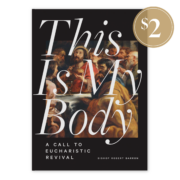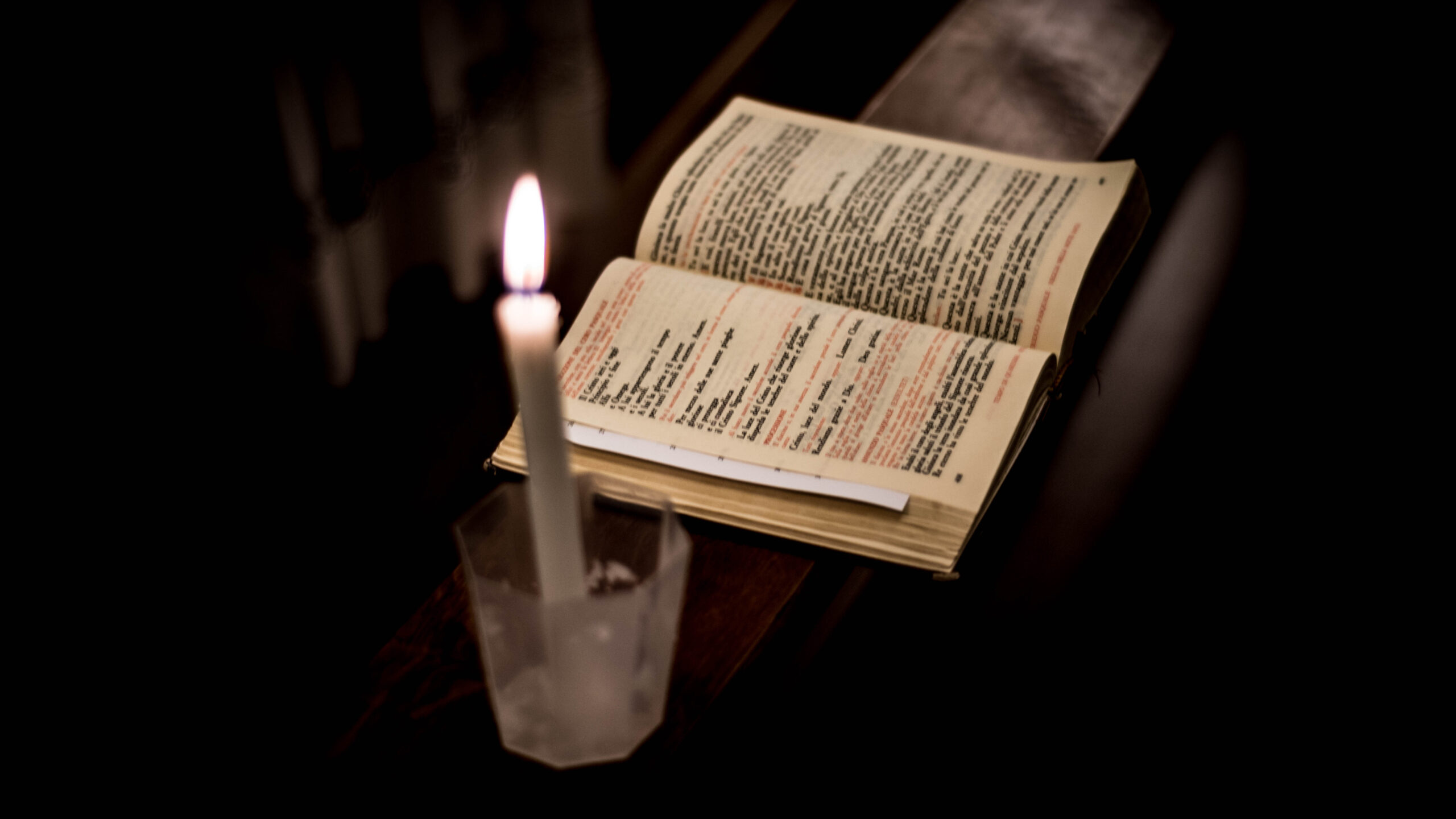At Midday Prayer, the psalms are a little shorter and—for me, anyway—distractions weigh a little longer. A while back, the third psalm at midday was Psalm 14, which teaches on the foolishness of sinners—which means the foolishness of all of us.
Personally, I am unhappy with myself just now for many reasons—most of them are quite just, I think—and though I’ve read the Psalm many times, that particular Psalm on that particular day struck me and has stayed with me. Every line struck me; every line felt like it was meant for me.
Perhaps I should mention that lately when I read the Psalms of the Liturgy of the Hours, I will use the clear edge of a small prayer card to read one line at a time—to really try to eliminate distraction and read the words closely by using the transparent edge to hone in on the prayer’s meaning. That might have something to do with how powerfully these words hit me.
Or it just might be that these are the words I need to dwell on, and internalize, for myself and for the world.

For many of us, Easter brings a sense of Christ’s mercy covering everything and everyone, of Christ gathering all of us into himself. This Psalm is the reminder that we continue, every day, to hold ourselves back—even if we think we do not want to or that we are actively trying to be more open to Christ, to others, to the world. We hold back because of our frail, faulty humanity, our egos, our brokenness, our fickle hearts, our fear of really, truly trusting, especially in what is unfathomable or scary or requires us to render and echo of the surrender in Gethsemane.
No wonder each day we must begin anew. No wonder each day we have a new encounter with the prayers of the Liturgy of the Hours; each day a new Mass; each day a new opportunity for Holy Communion. We need it.
I need it.
Try it line-by-line yourself, and see how it fits you.
The fool has said in his heart:
“There is no God above.”
Their deeds are corrupt, depraved;
not a good man is left.
From heaven the Lord looks down
on the sons of men
to see if any are wise,
if any seek God.
All have left the right path,
depraved, every one;
there is not a good man left,
no, not even one.
Will the evil-doers not understand?
They eat up my people
as though they were eating bread:
they never pray to the Lord.
See how they tremble with fear
without cause for fear:
for God is with the just.
You may mock the poor man’s hope,
but his refuge is the Lord.
O that Israel’s salvation might come from Zion!
When the Lord delivers his people from bondage,
then Jacob will be glad and Israel rejoice.
“They eat up my people, as though they were eating bread…” How terribly we use and use up each other, every day, so thoughtlessly, whether we intend to or not.
How often we sin by simply, brusquely trodding over the humanity of the stranger or the person we love because we are so intent upon whatever has captured our mind at the moment.
We “eat each other up, like bread” which we consume carelessly and voraciously on social media, willfully forgetting that there are human beings on the other side of the platform who may need a real word in season as opposed to a clever retort.
We “throw each other away,” and not only in those big ways—abortion, euthanasia, or in “shutting away” the sick or inconvenient—but in the small ways too. We ignore each other. We push aside. We pounce. We pressure. We scold. We think of other people as things or as a mere means to an end. We render each other meaningless, into ghosts and shadows, and we do it all day long.
I do it. If not all day long, at least everyday.

After praying the Liturgy of the Hours (which, in truth, takes fifteen to twenty minutes at a time) for about two decades, I can tell you that it has changed me. The Psalms, prayers, and canticles work on me slowly, like drops of water upon my stony, stony heart, eventually wearing me down to my core where ancient words and wisdom help me—force me—to examine myself, my motives, my old hurts and held-to wounds. Facing oneself within the language of Eternity has a way of humbling one; I know my own tempestuous heart has been gentled over time, even when I am not praying the Hours as regularly as I like, even if I can only catch them a few times during an especially busy week. The Hours sanctify time and draw your mind and spirit back to what is holy, and that is always a good and helpful thing.
But sometimes, as in my encounter with this Psalm—which I have read through so often over the years—they just stop you dead in your tracks, and brutally.
Knowing all of this makes me very happy—no, not just happy but very excited—that Word on Fire has decided to bring out a portion of the Hours, laid out in an easy-to-follow manner, in monthly form and at a price that won’t break most of our banks, even if it means giving up a beloved latte or two. To my way of thinking and in my experience, the more people praying the Hours, even a portion of them, even just a few days a week as time permits, the better off the whole world will be because the drop of water, landing collectively, plop, plop upon our stony hearts, can only help us to become the very change, the very spirit, we wish to see in our society and in the world.
It can only be a good thing for more of us to turn to a page of prayer meant for a time of day and collectively, with Christians all over the world, utter “God, come to my assistance; Lord, make haste to help me,” and then give Glory to the Triune God as we launch into the very prayers Christ himself would raise up in company.
